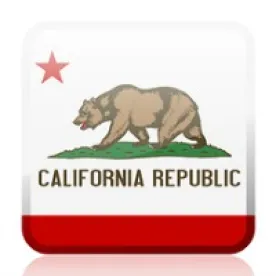The following is a sampling of the changes implemented by the California Office of Environmental Health Hazard Assessment (OEHHA) during the first quarter of 2016.
Establishment of Prop 65 “Lead Agency Website”
On January 25, 2016, the OEHHA gave notice of a new regulation regarding the establishment of a lead agency website. The regulation establishes the framework for a website operated by OEHHA that will provide supplemental information to the public about potential exposures to Prop 65 listed chemicals.
The new website will obtain content through new reporting requirements in response to OEHHA information requests. Specifically, within 90 days of a request from OEHHA, businesses “must provide . . . when reasonably available” the following types of information:
-
the location of the chemical in the product
-
the concentration (including mean, minimum, and mode) of the chemical in the final product
-
the anticipated routes of exposure to the chemical
-
the estimated levels of exposure to the chemical in the product
-
“any other related information concerned exposures to listed chemicals”
However, the new regulation does not require businesses to develop any new information. It specifically states that if the information the OEHHA requests is not in the possession or control of the business, then the business is not required to procure the information.
The regulation went into effect on April 1, 2016. However, the website has not yet launched and OEHHA has not addressed when businesses may anticipate receiving and having to respond to information requests.
Attorney General Proposes Amendment to Prop 65 Enforcement
On September 25, 2015, the Office of the Attorney General proposed regulations intended to report the private enforcement of Prop 65 and increase the transparency of settlements in private party cases. The notice of intended rulemaking can be found here. On Feb. 4, 2016, an amendment to the proposed rulemaking was issued.
The proposed amendments relate to settlement terms, penalty amounts, and attorneys’ fees in civil actions filed by private persons in the public interest pursuant to Prop 65.
1. Settlement Terms: The regulations regarding settlements and additional settlement payments will be modified as follows:
i. Where private enforcers enter into a settlement without filing a complaint, they will be required to report the settlement to the attorney general within five days after any violation addressed in the notice is subject to a settlement
ii. Where settlements include additional settlement payments, parties will be encouraged to submit their settlements for judicial approval
iii. The Attorney General will create a list of criteria for use in determining whether it will object to the inclusion of additional settlement payments
2. Attorneys’ Fees: Three major amendments regarding the recovery of plaintiffs’ attorneys fees were proposed:
i. The bar for determining when a settlement confers the “significant” public benefit prerequisite for obtaining fees will be raised
ii. There will be a rebuttable presumption that a reformulation confers a significant public benefit
iii. There will be a requirement that all investigation costs be justified through contemporaneous records of time/costs incurred.
3. Penalty Amounts: With respect to penalties, the proposed amendment proposes a cap on the fraction of settlement payments that can be paid “in lieu of” civil penalties.
Ultimately, it is anticipated that these proposed changes will increase defense costs in Prop 65 actions, since any additional substantive and procedural requirements imposed on private plaintiffs for prosecuting and settling Prop 65 actions are typically passed on to defendants in the form of additional attorney’s fees and costs.
Further, although the goal of the amendments is to provide increased transparency and judicial oversight of settlement agreements, it is likely that the proposed changes will make it more financially burdensome to settle Prop 65 cases.
OEHHA Proposes Updated Article 6
On November 27, 2015, OEHHA withdrew its much-debated January 16, 2015 proposal to rewrite Article 6 of Prop 65 and announced that it would move forward with an update taking into account comments regarding the earlier proposal. According to OEHHA, the new regulations “would further the ‘right-to-know’ purposes of the statute and provide more specific guidance on the content and safe harbor warnings for a variety of exposure situations, and corresponding methods for providing those warnings.” They would also add a section addressing relative responsibilities for providing warnings for businesses in the chain of commerce versus retail sellers of a given product.
The new proposed Article 6 can be found here, along with a side-by-side comparison to the current version.





 />i
/>i

